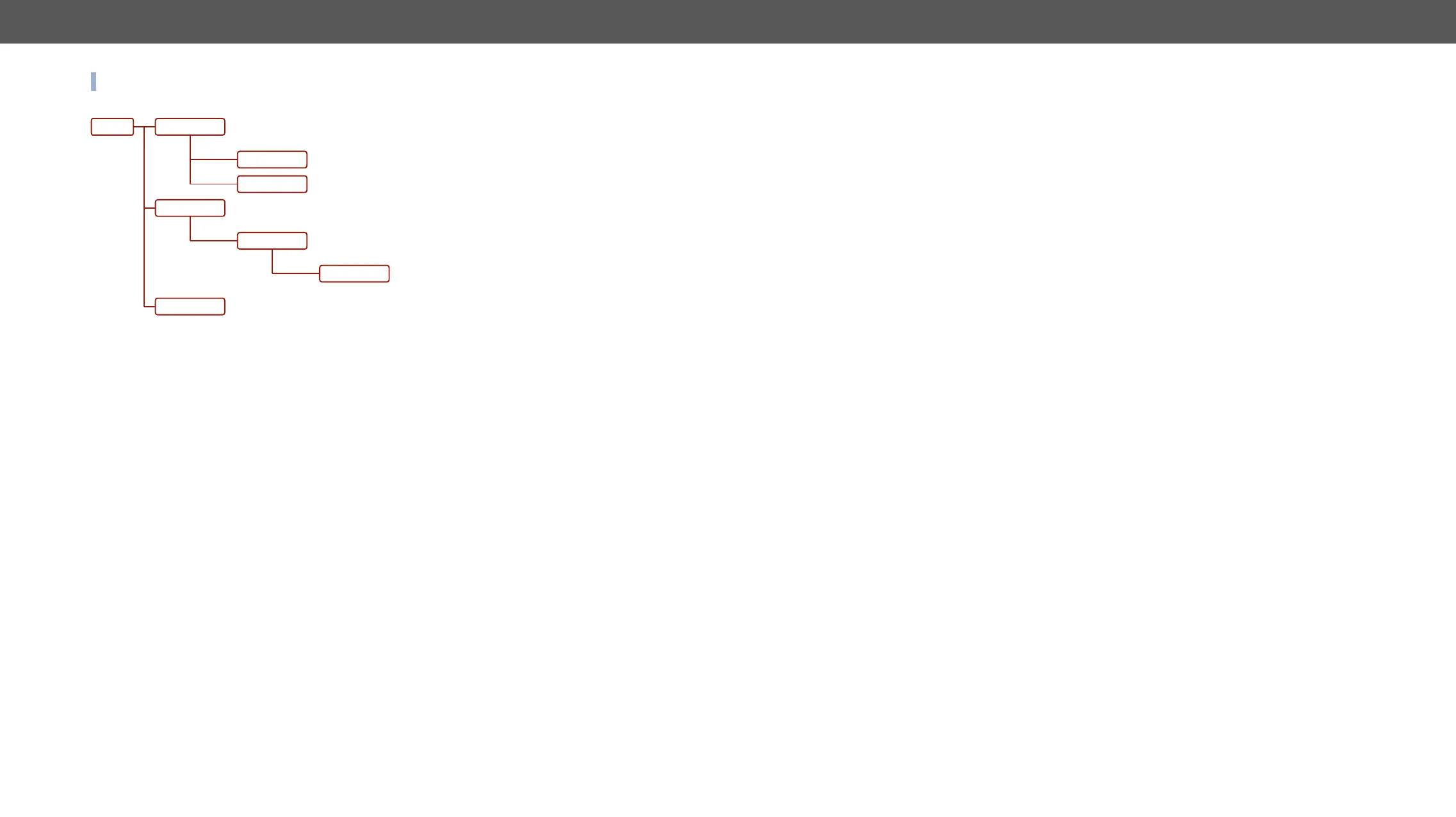HDMI-TPS-RX110AY – User's Manual 43
INFO: All parent nodes must be listed in the path of a node.
Following example presents the structure of the tree traversal:
Path of the nodes:
Tree structure of the nodes
Property
▪ A property has a value.
▪ A property cannot have child nodes or child properties. It is always a leaf.
▪ A node can have any number of properties (may not have any).
▪ A property is referenced with a dot (‘.’) after the node name.
▪ The properties’ name can contain the elements of the English alphabet, numbers and underscore (‘_’)
character.
▪ By convention, properties are beginning with a capital letter, all other characters are lowercase ones.
In the case of compound words, all words are beginning with a capital letter (CamelCase).
▪ The value of the property can contain any readable ASCII character.
▪
: pX●
Legend:
p: property
‘X’ can be:
‘r’: if the property is read-only.
‘w’: if the property is readable, writable.
‘m’: the manual of the property.
‘E’: error message for the property.
'v': virtual node property: contains a node path to a node which will be linked to
the property's parent node.
node2
node3
node1n-/
node12
node21
node11
node211
Example:
The following two ones are read-only properties:
pr●
pr●
The following two ones are read-write properties:
pw●
pw●
Method
▪ A method cannot have child nodes or child methods. It is always a leaf.
▪ A node can have any number of methods (may not have any).
▪ A method is referenced with a colon (‘:’) after the node.
▪ The methods’ name can contain the elements of the English alphabet, numbers and underscore (‘_’)
character.
▪
▪ The parameter of the method can contain any readable ASCII character.
▪ The method always has a return ‘state’ if the method could be executed. The state could be either ‘OK’
▪ The method does not necessarily have a return ‘value’. If it does, it can contain additional information,
▪
: mX●
Legend:
m: method
‘X’ can be:
‘O’: when the execution of the method was successful (OK).
‘F’: when the execution of the method failed.
‘m’: the manual of the method.
‘E’: error message for the method.
Example:
mO●
mO●
mE●%E001:Syntax error
mm●
